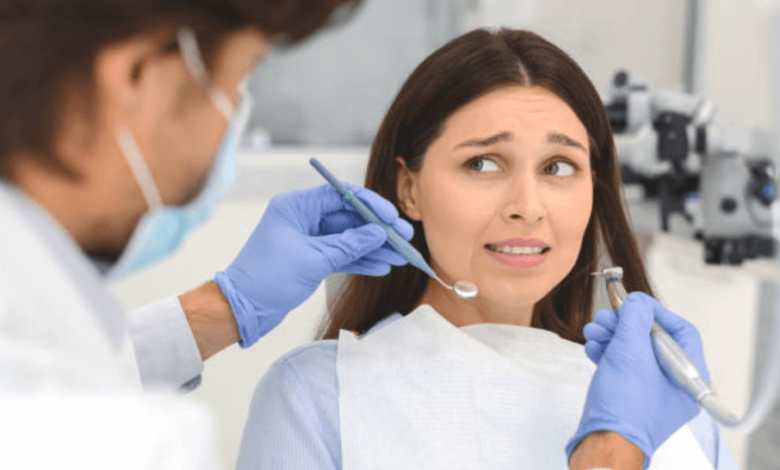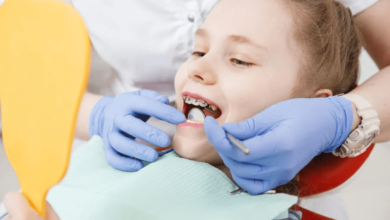Why Adults Are Not Immune to Tooth Decay

Many adults believe they’ve outgrown their cavity-prone childhood years, thinking tooth decay is primarily a problem for kids who eat too much candy. This dangerous misconception leads countless adults to neglect their oral health, only to discover that cavities don’t discriminate by age. Adult tooth decay affects millions of people worldwide and can cause serious health complications when left untreated.
The Persistent Threat of Bacteria
Oral Bacteria Never Take a Break
Your mouth houses over 700 different species of bacteria, many of which thrive on sugars and starches from your daily diet. These microorganisms don’t suddenly become less active when you reach adulthood. Certain life changes can make adults even more susceptible to bacterial overgrowth and tooth decay.
Streptococcus mutans and Streptococcus sobrinus are the primary culprits behind cavity formation. These bacteria convert dietary sugars into lactic acid, which gradually dissolves tooth enamel over time. The process remains identical whether you’re 8 or 80 years old.
Biofilm Formation Increases with Age
Adult mouths often develop more complex bacterial communities called biofilms. These sticky layers of bacteria adhere to teeth and become increasingly difficult to remove through regular brushing and flossing. As biofilms mature, they create acidic environments that accelerate enamel breakdown.
Plaque accumulation tends to worsen with age due to decreased manual dexterity, medication side effects, and changing oral hygiene habits. This creates ideal conditions for cavity-causing bacteria to flourish.
Lifestyle Factors That Increase Adult Cavity Risk
Dietary Changes and Snacking Habits
Adult eating patterns often contribute more to tooth decay than childhood diets. Frequent snacking, especially on processed foods, provides constant fuel for harmful bacteria. Coffee, wine, and sports drinks create acidic conditions that soften enamel and make teeth more vulnerable to bacterial attack.
Workplace vending machines, late-night snacking, and social drinking expose adult teeth to sugars and acids throughout the day. Unlike children who typically eat at scheduled meal times, many adults graze continuously, giving bacteria steady access to cavity-causing nutrients.
Stress and Its Impact on Oral Health
Chronic stress affects adults more than children and directly contributes to tooth decay through multiple pathways. Stress hormones reduce saliva production, eliminating your mouth’s natural defense against acid-producing bacteria. Many stressed adults also grind their teeth, creating microscopic cracks that allow bacteria to penetrate deeper into tooth structure.
Comfort eating during stressful periods often involves sugary or starchy foods that feed cavity-causing bacteria. Additionally, stressed individuals frequently neglect oral hygiene routines, allowing plaque to accumulate unchecked.
See also: How Smiling Improves Your Health and Happiness
Age-Related Changes That Promote Decay
Medication Side Effects
Adults take significantly more medications than children, and many common prescriptions reduce saliva flow. Antidepressants, antihistamines, blood pressure medications, and pain relievers can cause dry mouth conditions that eliminate saliva’s protective benefits.
Saliva neutralizes acids, washes away food particles, and contains antimicrobial compounds that fight harmful bacteria. When medication reduces saliva production, teeth lose these natural defenses against decay.
Gum Recession Exposes Vulnerable Areas
As adults age, gums naturally recede and expose tooth roots that lack protective enamel coating. These root surfaces consist of softer dentin that dissolves more easily when exposed to bacterial acids. Root caries become increasingly common after age 35 and progress faster than crown cavities.
Aggressive brushing, periodontal disease, and genetic factors accelerate gum recession in many adults. Once roots become exposed, they require extra attention and professional fluoride treatments to prevent rapid decay.
Medical Conditions and Tooth Decay
Diabetes and Oral Health Connection
Diabetic adults face significantly higher cavity risks due to elevated blood sugar levels that feed oral bacteria. Poorly controlled diabetes also impairs immune function, making it harder to fight off bacterial infections in the mouth.
High glucose concentrations in saliva create ideal growing conditions for cavity-causing bacteria. Additionally, diabetes-related complications often include reduced saliva production and slower healing of oral tissues.
Gastroesophageal Reflux Disease
GERD affects millions of adults and bathes teeth in stomach acid that erodes enamel directly. This acid exposure makes teeth more susceptible to bacterial decay by weakening their protective outer layer.
Many adults don’t realize that frequent heartburn or acid reflux significantly increases their cavity risk. If you’re experiencing persistent reflux symptoms, consulting with a qualified dentist in Palm Harbor, FL or your local area can help identify and address oral health complications before they become serious.
Hormonal Changes and Dental Health
Pregnancy and Hormonal Fluctuations
Pregnant women experience dramatic hormonal changes that affect oral bacteria composition and increase cavity risk. Pregnancy-related nausea and vomiting expose teeth to stomach acid, while hormonal fluctuations can increase bacterial growth and gum inflammation.
Morning sickness often leads to frequent vomiting, which repeatedly bathes teeth in erosive stomach acid. Combined with changes in dietary habits and oral hygiene challenges, pregnancy creates multiple pathways for adult tooth decay.
Menopause and Oral Health
Postmenopausal women face increased cavity risks due to hormonal changes that affect saliva production and bone density. Reduced estrogen levels can lead to dry mouth conditions and changes in oral tissue health that promote bacterial growth.
Bone loss associated with menopause can affect jawbone density and tooth stability, creating new spaces where bacteria can accumulate and cause decay.
Prevention Strategies for Adults
Professional Care Remains Essential
Regular dental cleanings and examinations become even more important for adults due to increased cavity risk factors. Professional fluoride treatments and early intervention can prevent minor issues from becoming major problems.
Advanced Home Care Techniques
Adults benefit from prescription fluoride toothpaste, antimicrobial mouth rinses, and specialized cleaning tools that target areas where bacteria accumulate. Electric toothbrushes and water flossers can improve cleaning effectiveness for adults with dexterity challenges.
Adult tooth decay is a serious health concern that requires ongoing attention and professional care. Understanding your increased vulnerability helps you take proactive steps to maintain healthy teeth throughout your adult years.





